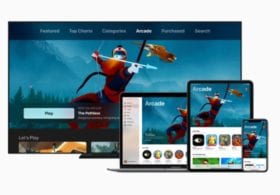|
Related Stories
Cynopsis 12/13/24: Adult Swim launching “Comedic Side Effects”

Friday December 13, 2024 IN THE NEWS Warner Bros. Discovery has created a new corporate structure, splitting its linear and streaming content assets into two separate and distinct operating divisions. WBD’s Global Linear Networks division will include its linear networks like TBS, TNT and HLN; while its Streaming & Studios division will house the […]
Cynopsis 12/12/24: HGTV renews “Zillow Gone Wild” for season two

Thursday December 12, 2024 IN THE NEWS Total TV set viewing on YouTube hit one billion hours, according to the platform. In a blog post, the company said viewing time of sports content via TV sets saw a 30% lift in 2024 compared with 2023, “as users visit YouTube to get their lineup of […]
12/11/24: Cynopsis Jobs

Wednesday December 11, 2024 COUNSEL, LEGAL & BUSINESS AFFAIRS >> MLB NETWORK/SECAUCUS, NJ: Responsible for a variety of matters, including services agreements, production related agreements, talent agreements, software and other technology related agreements, licensing and programming agreements, third party rights clearances, distribution agreements, contract summaries, confidentiality, and general contract matters. Full info
Cynopsis 12/11/24: Matt Gaetz lands at far-right OAN

A CYNOPSIS MESSAGE FROM GREAT AMERICAN MEDIA Great American Family Breaks into Top 25 in Just Three Years Great American Family’s rapid growth is fueled by the success of Great American Christmas, making us one of only 11 networks to see a rise in viewership this November. Welcome Home to the most authentic Christmas celebration […]
12/10/24: Cynopsis Media Tech Update

A CYNOPSIS MESSAGE FROM PREMION PREMION Premium CTV/OTT Advertising BUILT WITH THE POWER OF LOCAL New: 2024 CTV/OTT Advertiser Perceptions Study 74% of advertisers agree that combining Linear TV & CTV/OTT is integral to a complete TV strategy. DOWNLOAD COMPLIMENTARY REPORT Premium Brand-Safe Streaming TV Advertising 125+ Leading TV & Media Brands, […]
CynCity
Cynsiders
Drew Lachey Brings it Home in “Date My House”
From pop sensation to DIY inspiration, Drew Lachey is bringing his creative talents to a...The Hidden Influence: How Emotions Drive our Choices
Mediaprobe’s database of emotional reactions to televised content offers insights into viewer engagement. MediaProbe CEO...Weigel Networks Get in the Holiday Spirit
Weigel networks have a robust holiday slate, with programming ranging from “Meet Me in St....

